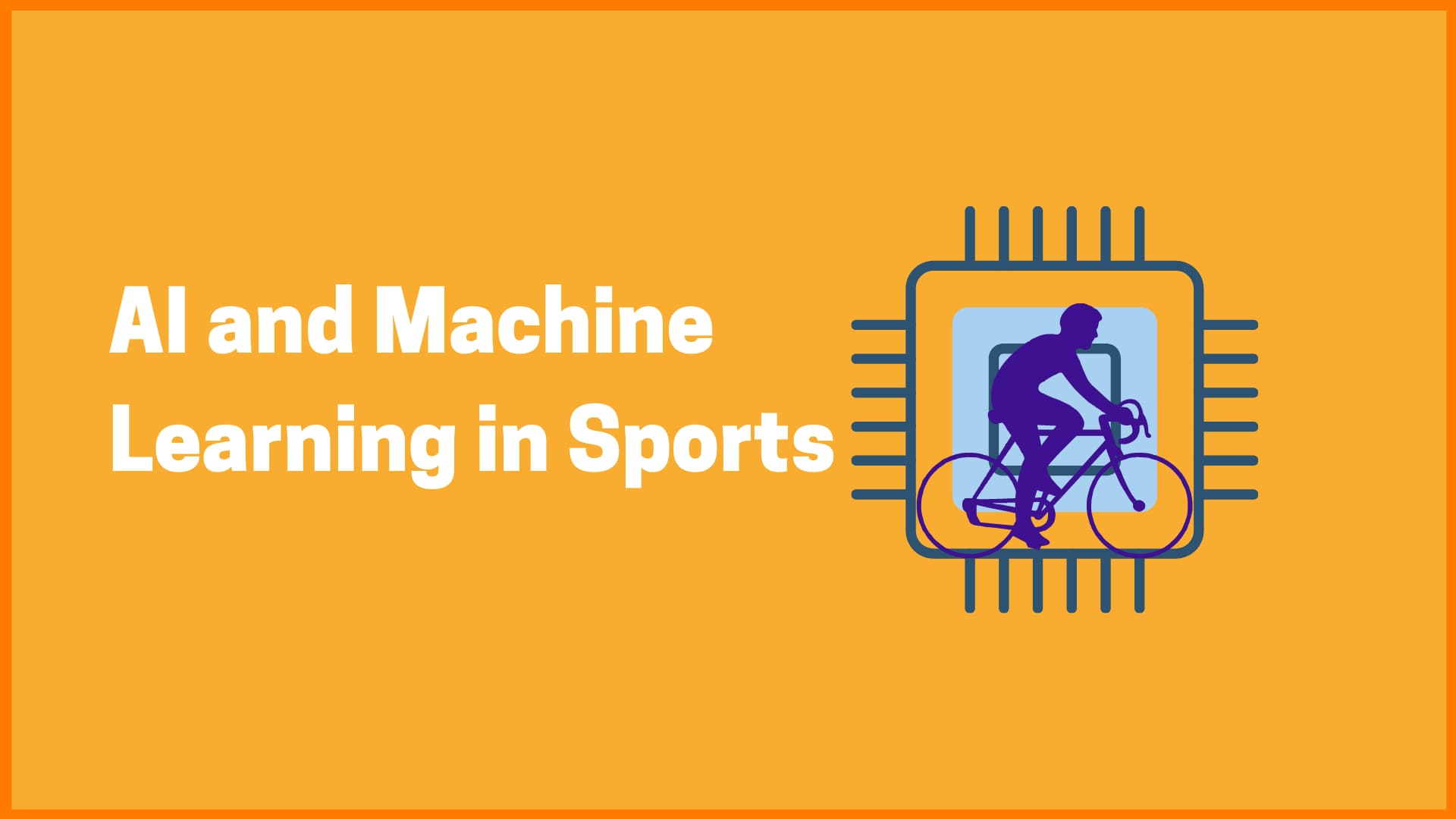Unleashing the Power of AI and Data Analytics in Sports Performance Analysis
🔍Insights
Sports performance analysis and management have undergone a profound transformation in recent years, thanks to relentless advancements in technology.
Artificial Intelligence (AI) and data analytics have become game-changers, offering a plethora of advantages to the sports industry. The ability to harness real-time data through sensors, wearables, and tracking devices has empowered teams to delve deep into player performance metrics like never before.
Imagine a world where every move, every heartbeat, every step is meticulously analyzed to unlock the secrets of peak athletic prowess.
Let's explore how AI and data analytics are reshaping the landscape of sports performance analysis and management, paving the way for a new era of excellence.
AI and Data Analytics in Sports Performance Analysis
Harnessing the Potential of Data Analytics
Delving into Real-time Data Insights
Redefining Performance Enhancement Strategies
Real-time Data Collection and Analysis
Performance Enhancement and Injury Prevention
Tactical Analysis and Game Planning
Talent Identification and Recruitment
AI and Data Analytics in Sports Performance Analysis
In the realm of sports performance analysis, Artificial Intelligence (AI) stands as a formidable force, revolutionizing the way teams evaluate and enhance player capabilities. Through sophisticated algorithms and machine learning techniques, coaches and analysts can now dissect vast troves of data, extracting invaluable insights that were once out of reach. This data-driven approach empowers decision-makers to craft more informed strategies, optimizing training regimens, game plans, and player development with pinpoint precision.
Harnessing the Potential of Data Analytics
The fusion of AI and data analytics has ushered in a new era of sports analysis, where performance evaluation transcends conventional boundaries. By tapping into a rich tapestry of player data, coaches and analysts can unravel intricate patterns and trends, shedding light on areas for improvement and avenues for growth. Armed with this wealth of information, teams can fine-tune their approaches, refine their tactical acumen, and propel their athletes to new heights of excellence.
"We emphasize leveraging cutting-edge technologies such as AI, Machine Learning, and computer vision to introduce features like automated scoring, game highlights, and professional-level statistics, which were traditionally accessible only to top-tier athletes. These innovations enhance the player's physical capabilities and democratize high-tech sports analytics, making these advanced toold available at the grassroots level," Game Theory Founder and CEO Sudeep Kulkarni told StartupTalky. Game Theory is sportech startup that is making sports accessible to all age groups.programs
Delving into Real-time Data Insights
One of the standout advantages of AI and data analytics in sports lies in the ability to capture and analyze real-time data streams. From sensors and wearables to tracking devices, teams can monitor a myriad of player metrics instantaneously, from speed and distance covered to heart rate and biomechanical movements. This real-time analysis empowers coaches and analysts to make on-the-fly adjustments, optimizing performance and mitigating injury risks in the heat of competition.

Redefining Performance Enhancement Strategies
With the advent of AI, the landscape of performance enhancement and injury prevention in sports has undergone a monumental shift. By vigilantly tracking player metrics, coaches can pinpoint indicators of fatigue, overexertion, and injury susceptibility, enabling proactive interventions to safeguard athlete well-being. Moreover, AI algorithms can forecast injury probabilities based on historical data, allowing teams to preemptively address potential risks.
"AI performance tracking software provides unbiased data collection, aggregation and performance analysis. It can also be utilised to study an opponent and build strategies to exploit the opponents weakness and maximise the chances of success. AI has also been used to judge the performances of athletes. For eg. The AI-powered Judging Support System (JSS) was used in the 2023 Gymnastics World Championships. AI performance tracking can also help in injury prevention and recovery monitoring," Tagglabs Founder Hariom Seth told StartupTalky.
Tagglabs is a startup focused on inventions in new media and technology for marketing and communications. "At present AI is used to engage fans of Indian sports teams. We too used AI to generate personalized, shareable videos for fans featuring top cricketers for Seagram’s Royal stag," Seth said.
Royal Stag | A Billion Films For A Billion Fans
Tagglabs has been serving clients--Vodafone, Kingfisher, Nike, LG, Samsung, BMW, Audi, Volkswagen, Honda, Hyundai, Tata Motors, and Times Group--with the latest AI techniques. It crafted a video experience for ICC Men's Cricket World Cup 2023 using AI and boAt.
Real-time Data Collection and Analysis
Real-time data collection and analysis have become indispensable tools for teams seeking a competitive edge. The ability to gather and analyze vast amounts of data in real-time has revolutionized how teams evaluate and improve player performance, leading to more informed decision-making and enhanced training strategies.
"The rise of OTT platforms has provided unprecedented access on demand
to sports content that would otherwise not be telecasted on linear TV due to limited availability of slots. With scope for hosting live matches, highlights, as well as exclusive content on OTT platforms, sports with lower visibility have an opportunity to enrich their engagement with audiences. AI-driven features can further empower sports organizations to deliver immersive content that enhances fan engagement and transforms the viewing experience," Stupa Sports Analytics CEO and co-founder Megha Gambhir told StartupTalky.
Stupa Sports Analytics modernizes sports with its AI and tech-driven solutions, benefiting players, fans, federations, and rights-holders, said Gambhir. "The AI tech curates highlights and reels for federations and players, opening up new monetization avenues."
Sensors, wearables, and tracking devices play a crucial role in the real-time data collection process, providing valuable insights into various aspects of player performance such as speed, distance covered, heart rate, and biomechanical movements.
Continuous monitoring of player metrics through these technologies allows coaches and analysts to make immediate adjustments to training and game strategies, optimizing performance and reducing the risk of injuries.
The real-time analysis of data enables proactive interventions, such as adjusting training loads, implementing recovery protocols, and modifying playing time, to enhance performance enhancement and injury prevention strategies.
"Real time data collection provides instant feedback to coaches and players during training sessions and matches. It allows for quick adjustments in tactics and strategies based on real-time insights. It enhances the overall spectator experience by providing engaging real-time statistics and analysis," Jatin Paranjape, former Indian cricketer turned sports entrepreneur, shared with StartupTalky. Paranjape is a CEO and founder of KheloMore.
KheloMore is a digital platform that unites aspiring young athletes with coaches and academies, facilitating exceptional offline performance opportunities.

Performance Enhancement and Injury Prevention
By harnessing the power of real-time data collection and analysis, teams can pinpoint areas of improvement and tailor training strategies for optimal results. The seamless integration of AI algorithms into the decision-making process empowers teams to make informed choices that prioritize player well-being and performance excellence.
Data-driven insights pave the way for customized training programs that address individual player needs and optimize overall team performance. By analyzing biomechanical movements and physiological measurements, coaches can identify patterns that may lead to inefficiencies or injury risks. The combination of real-time data analysis and personalized coaching strategies sets the stage for a new era of sports performance enhancement, where every decision is rooted in data-driven precision.
Through the strategic application of AI and data analytics, teams can create a culture of injury prevention that fosters sustained performance excellence and longevity in athletes.
By simulating different game scenarios and predicting the effectiveness of various strategies, coaches can make informed decisions in real time, giving their team a competitive edge on the field. The fusion of technology and strategy reshapes the landscape of sports, propelling teams toward success through intelligent decision-making.
"Technology empowers young athletes and coaches by democratizing access to pro-level analysis and tools. This approach helps nurture grassroots talent and instill a sense of competitiveness by providing insights that were traditionally available only to top-tier athletes. Coaches can use this data to tailor training programs more effectively, monitor athletes' progress in real-time, and make data-driven decisions that enhance performance outcomes," Kulkarni commented.
The marriage of cutting-edge technology and athletic prowess propels teams towards peak performance, setting new standards of achievement and innovation in the dynamic world of sports.

Tactical Analysis and Game Planning
Coaches and analysts now have access to a treasure trove of historical game footage and player performance data, allowing them to uncover intricate patterns and trends that were previously hidden. This innovative approach enables coaches to identify specific player tendencies, exploit opponent weaknesses, and optimize their team's performance to achieve victory on the field.
Moreover, the power of AI and data analytics extends to simulating different game scenarios and predicting the effectiveness of various strategies. Through sophisticated algorithms, coaches gain valuable foresight into the potential outcomes of their decisions during matches, equipping them with a strategic edge over the competition. This forward-thinking approach to game planning not only enhances performance but also fosters a culture of continuous improvement and strategic innovation within sports teams.
By integrating data-driven insights into their decision-making process, coaches can optimize player positioning, refine tactical approaches, and instill a winning mindset in their teams. This meticulous attention to detail and strategic finesse set the stage for a revolution in sports performance analysis, where data reigns supreme in shaping the future of competition.
By harnessing the power of technology to decipher complex patterns and optimize strategic decisions, coaches and teams can unlock a new realm of competitive advantage and performance excellence. This data-driven approach not only enhances team performance but also elevates the overall spectator experience by showcasing the artistry and precision of strategic gameplay.
Talent Identification and Recruitment
In addition to enhancing on-field performance, AI and data analytics have also revolutionized talent identification and recruitment in sports. Teams can now leverage advanced algorithms to sift through massive amounts of data to pinpoint potential future stars. By analyzing player statistics, movement patterns, and even social media activity, organizations can make more informed decisions when scouting for new talent.
Conclusion
In conclusion, the integration of AI and data analytics in sports performance analysis and management has ushered in a new era of precision and innovation. The ability to gather and analyze real-time data has provided teams with unprecedented insights into player performance, leading to enhanced training programs, injury prevention strategies, and tactical game planning.
With the power of AI at their fingertips, sports organizations are better equipped to identify and recruit top talent, ultimately shaping the future of sports as we know it. As technology continues to evolve, the possibilities for further advancements in the sports industry are truly limitless.
FAQs
What is the role of technology in sports performance analysis and management?
Technology, particularly Artificial Intelligence (AI) and data analytics, has revolutionized the way sports performance is analyzed and managed. It allows teams to gather and analyze vast amounts of real-time data on various aspects of player performance, ultimately leading to improved outcomes.
How does AI and data analytics benefit sports teams?
AI and data analytics enable teams to collect data on player performance metrics such as speed, distance covered, heart rate, and biomechanical movements. This information helps in enhancing performance, preventing injuries, strategizing game plans, and identifying and recruiting talent effectively.
How does real-time data collection and analysis impact sports performance?
Real-time data collection and analysis through sensors, wearables, and tracking devices provide teams with immediate insights into player performance. This allows for quick adjustments during training sessions and games, leading to better decision-making and overall performance improvement.
What are some key areas where AI and data analytics are utilized in sports?
AI and data analytics are commonly used in sports for performance enhancement, injury prevention, tactical analysis, game planning, and talent identification and recruitment. These technologies have become essential tools for teams looking to gain a competitive edge in today's sports landscape.
Must have tools for startups - Recommended by StartupTalky
- Convert Visitors into Leads- SeizeLead
- Website Builder SquareSpace
- Run your business Smoothly Systeme.io
- Stock Images Shutterstock







